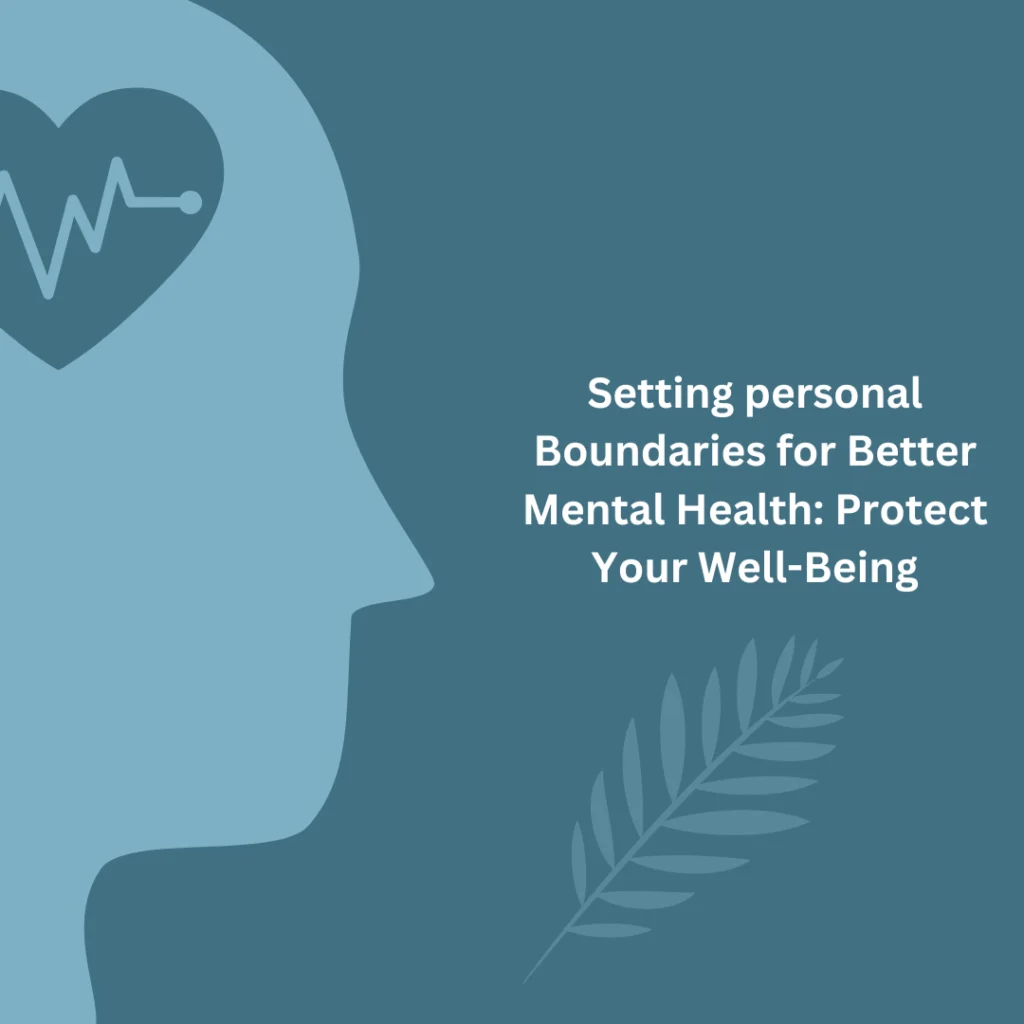
What Are Personal Boundaries?
So first when you hear the word “boundaries” what do you think of? The first thing that comes to mind at least for me is sports. Like thinking of the players, the actions, the ball, or whatever it is, it’s contained in the boundaries of a field, a court or whatever it is. The idea is to contain space and keep people somewhere.
So now we are jumping into personal boundaries, what are they? For me, they are the emotional limits, the physical barrier or mental blocks that we put into place to protect ourselves from getting used, manipulated, hurt, or bothered by other people.
Why are personal boundaries important?
If you find yourself being the pushover or someone that people step all over and constantly use for this and that. You might benefit from thinking about and establishing more personal boundaries in your life. When you establish healthy personal boundaries with people, you communicate to them that you respect yourself, that you have integrity, and that you value your time.
Challenges in setting personal boundaries:
We all have a hard time saying “No” sometimes and saying no is often one of the biggest things we can do to set personal boundaries with somebody. Why is it so hard to say “NO” sometimes? I think in our culture and our society we all are raised and socialized to accommodate other people. We often think of other people’s needs and feelings and sometimes we even prioritize those things before our own, but I would like for you to remember that your needs, and feelings these things are incredibly important for your overall wellness and satisfaction in life.
So thinking about what it is that makes it hard to say no kind of brings out the feelings of guilt or feeling somehow obligated to make sure this other person feels good. However, I would encourage you to get in the habit of saying no to people to protect yourself.
5 signs that you need stronger personal boundaries:

Here I’m going to tell you 5 signs that you need stronger personal boundaries:
1- Over-committing or people-pleasing:
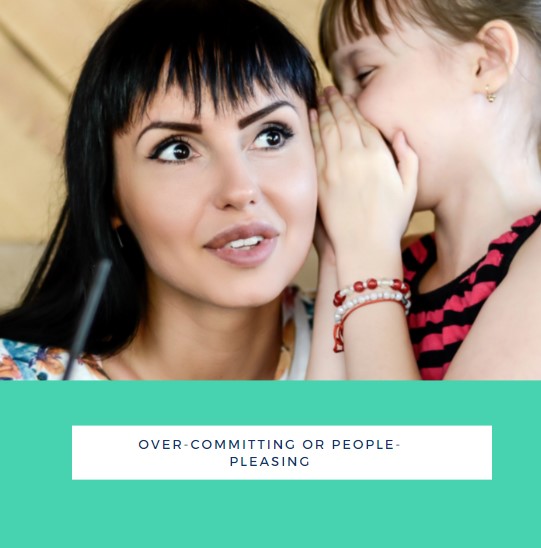
An example of this is consistently agreeing to take on tasks when you feel overloaded. You may fear disappointing the person or fear that saying no will feel mean or withholding. We all have a narrative identity. Let’s say part of your narrative identity is that you are not a selfish person and that selfishness is saying no to something that you are capable of doing. The power behind saying no will come from identifying your needs, once in values first so that you can remind yourself why you’re saying no. Your need or your value is the justification for saying no. Remind yourself that saying no is an act of self-care, not a rejection of others.
2- Feeling responsible for others’ emotions:
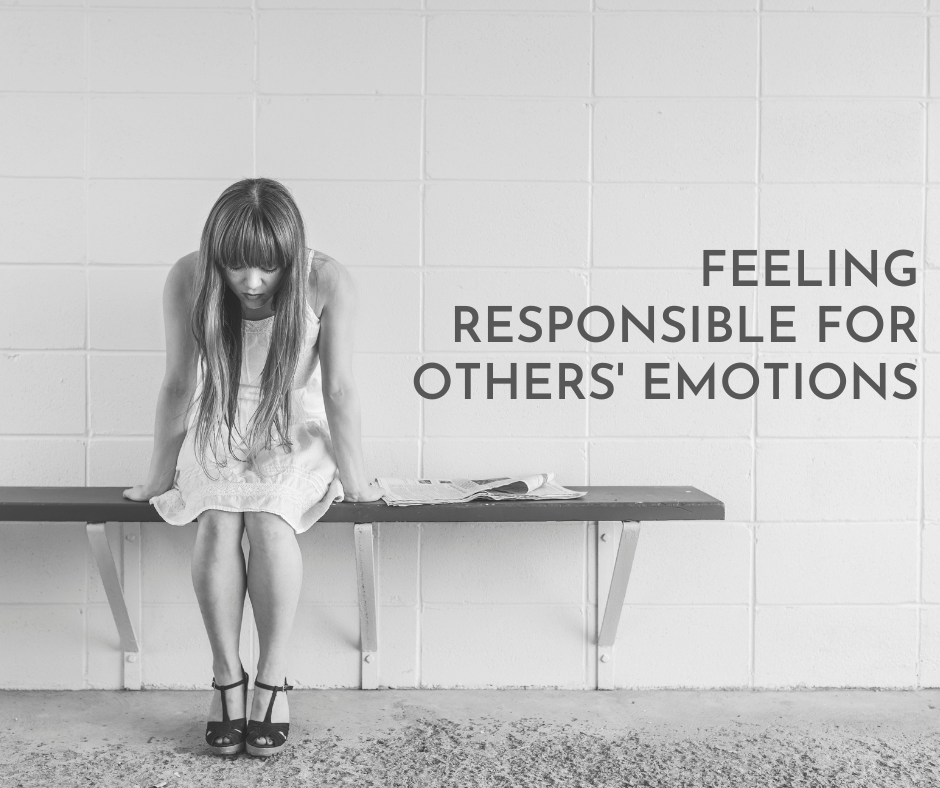
When you are constantly worrying about making others upset or angry and changing your behavior to keep people happy, even at the expense of your own well-being. An intervention for this is to develop self-awareness by recognizing when you’re absorbing other people’s emotions. When there are strong emotions in the air practice distinguishing between what you feel and what the other person is expressing. You’ll need to remind yourself that you’re not responsible for how others feel.
3- Being unable to express personal needs or opinions:
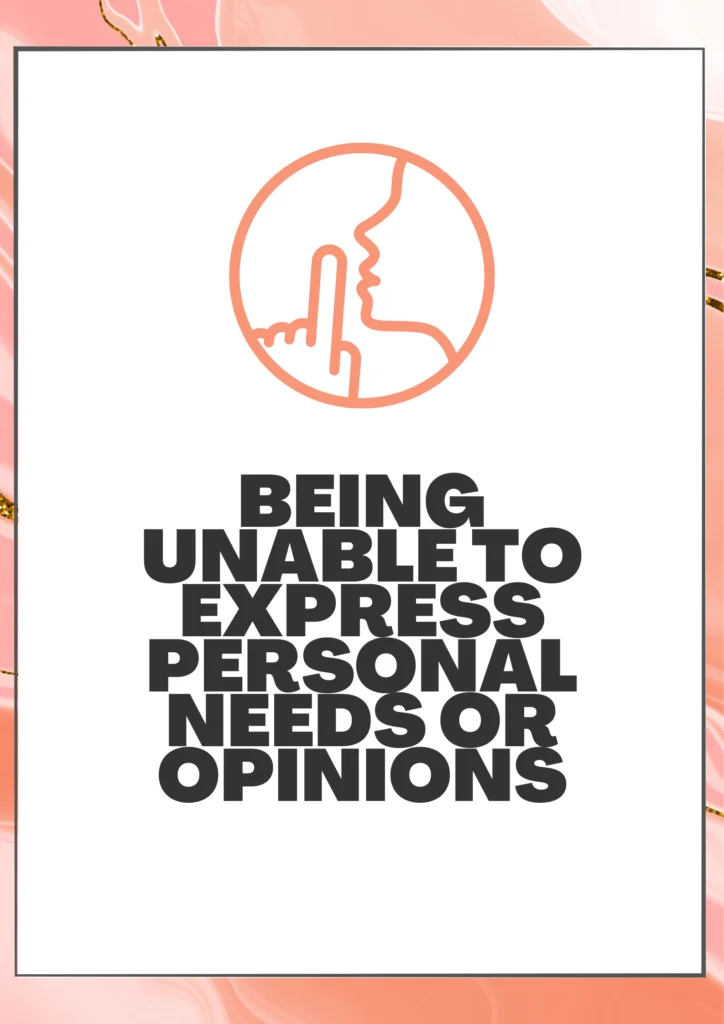
So in a relationship, you don’t express your desires or opinions. You go along with what the other person wants, neglecting your own needs. And this is pretty common if you’re conflicted, avoident. You’d rather go along with what the other person says than challenge them or ruin the mood with your contrary opinions.
Here’s one thing that you can do. Start by identifying your own needs and opinions in private through journaling (The Power of Journaling: Start a Daily Writing Habit) or self-reflection or through the narrative identity exercise.
4- Feeling guilty when prioritizing yourself:
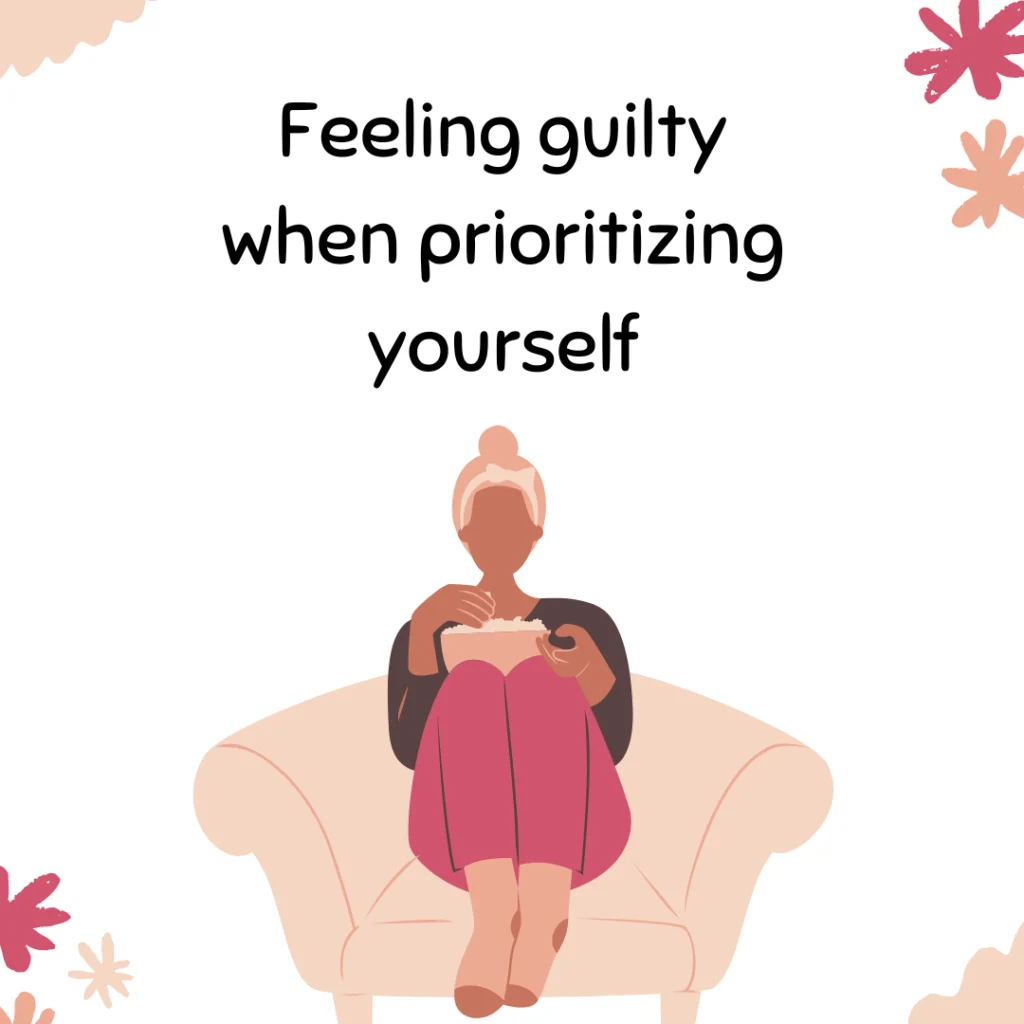
This is related to being unable to say no, but this is specifically around the issue of putting yourself first when you do say no or think about saying no. An example is feeling a ton of guilt when you set aside time for self-care or personal interests. You don’t feel good about doing that because you believe it is a waste of productive time or selfish not to be available to others. Challenge the validity of guilt-inducing thoughts and replace them with affirmations that emphasize the importance of self-care.
5- Sharing personal information too quickly or with the wrong people:
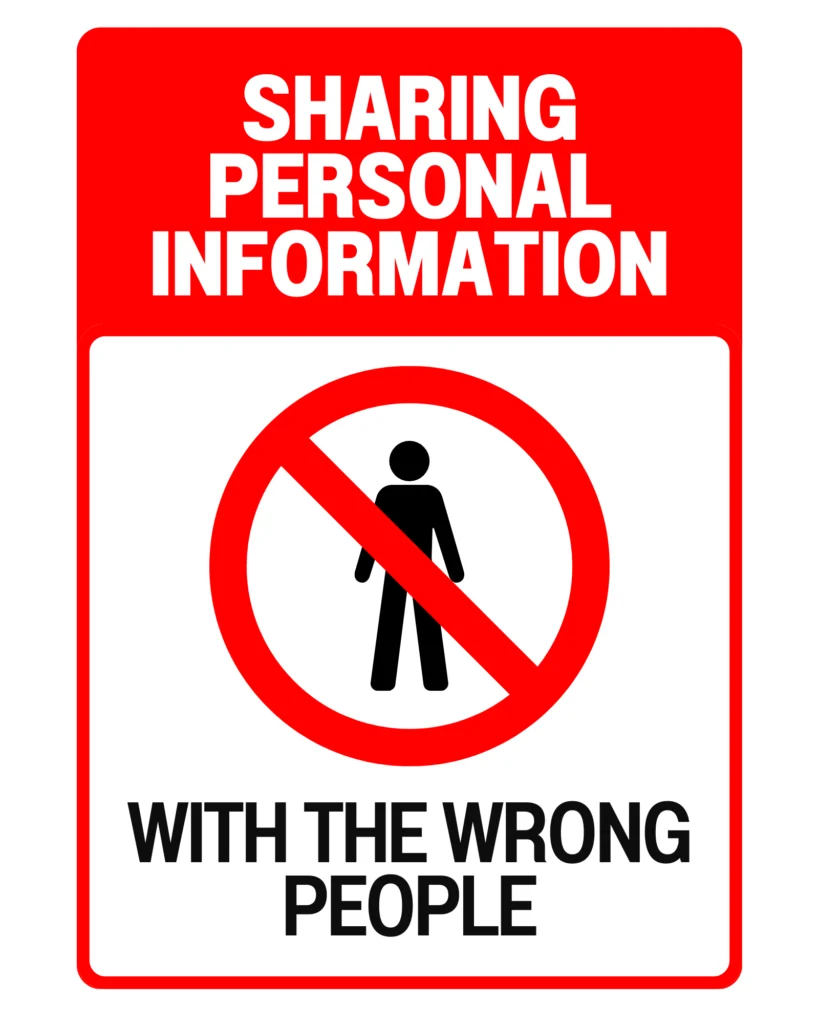
In this scenario, you overshare personal history or secrets in inappropriate settings or before you’ve established trust. A solution here is to develop a checklist of what information you are comfortable sharing with whom and under what circumstances. To help you get started here are some topics to think twice about before disclosing like medical conditions, mental health conditions, issues with parents’ ast-trauma experience, etc. They are topics that require reading the room first because they may make people feel uncomfortable, judged, vulnerable, or overwhelmed.
What are personal boundaries and why are they important?
They are the emotional limits, the physical barrier or mental blocks that we put into place to protect ourselves from getting used, manipulated, hurt, or bothered by other people.
If you find yourself being the pushover or someone that people step all over and constantly use for this and that. You might benefit from thinking about and establishing more personal boundaries in your life. When you can establish healthy personal boundaries with people, you communicate to them that you respect yourself, that you have integrity, and that you value your time.
What are some common challenges in setting boundaries?
Some common challenges in setting boundaries include saying no to others, fear of conflict, and feeling guilty for what you haven’t done.
What are the signs that I need stronger personal boundaries?
Here are some signs that I need stronger personal boundaries.
1- Over-committing or people-pleasing
2- Feeling responsible for others’ emotions
3- Sharing personal information too quickly or with the wrong people
4- Being unable to express personal needs or opinions
Why do I feel responsible for others’ emotions?
When you are constantly worrying about making others upset or angry and changing your behavior to keep people happy, even at the expense of your own well-being.
Conclusion:
Personal boundaries are the emotional limits, the physical barriers or mental blocks that we put into place to protect ourselves from getting used, manipulated, hurt, or bothered by other people. So it is important to set some boundaries for your well-being. Here in this blog, we told you about how setting boundaries will be challenging. We also write about 5 signs that you need stronger personal boundaries.
If you still have any queries related to the above topic feel free to ask in the comment section and it’s your turn—what boundaries have you set to protect your well-being? Share your experiences or tips in the comments below, and let’s support each other on the journey to better mental health!